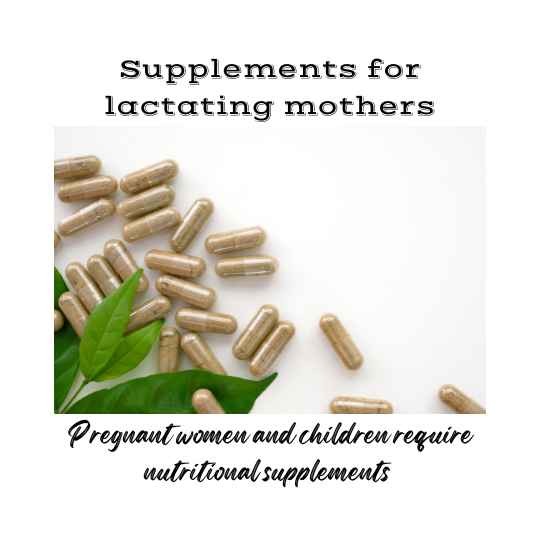Maternal nutrition is critical for pregnant, lactating mothers. They and children need more protein, carbohydrates, vitamins, fiber, and minerals. These are generally obtained from food, fortified food products, and supplements. There is an ongoing debate between those that lay stress on natural foods and others who believe that supplements are critical to maintaining the mother and the child in good health.
When it comes to natural foods, the food source becomes critical. Traditionally cultivated cereal, fruits, vegetables, meat, and dairy often contain high fertilizers and chemicals. These chemicals are used during cultivation to improve yield. Such contaminants are potentially hazardous to the health of both mother and the child.
Would that mean that expectant mothers, infants, and children should get their requirements of nutrients only from certified organic natural foods? And if the natural go route is the healthiest option, should we eschew supplements altogether? These are some of the questions I discussed with Nazneen Hussein, President Indian Dietetics Association, and other experts during the September 2018 Vitafoods Asia event held in Singapore.
While natural organic foods are a great source for obtaining balanced nutrition, these need to be planned for an individual. The diet must be customized to an individual’s taste and social and cultural preferences. If the individual happens to be a vegan, the challenge will be finding an optimum natural food source rich in Omega3, Vitamin B12, calcium, and other requirements. Plant-based foods are not good sources of these essential nutrients.
The go-natural route, while ideal, appears not very practical. The cost of a custom-made organic diet will be something that only small segments of people can afford. The majority are required to meet their maternal nutritional need with nutritional supplements.
According to a DSM study, around 80 percent of women in Europe take a supplement while pregnant, and in China, 98 percent use maternal health products (https://www.vitafoodsinsights.com/market-trends/consumers-want-know-why-should-they-supplement).
The global market for infant and maternal nutrition is huge too. The global infant nutrition market is predicted to grow at a compound annual rate of 5.90 percent from 2018 to 2023. It is expected to reach U$75.672 billion by 2023. This market was estimated in 2017 at US$53.634 billion (Global Infant Nutrition Market –Forecasts from 2018-2023 by ResearchandMarkets.com)
The Infant and Mother Nutrition Market can be segmented into catering to mothers and infants. Dietary supplements, dairy and dairy-related products, cereals, beverages, bars, shakes, etc., are major products for mothers, while baby food, milk formula, and related products focus on infants.
The natural product-based food and nutraceutical market is seeing the early signs of volatility and turmoil that are being brought about due to the trade tensions between the US and China. Chinese manufacturers dominate the natural products, nutrients, and supplement market. The Chinese presence in this market was evident in the Vitafoods Asia 2018 Singapore event. Nearly half of all the displays came from mainland China companies.
Most of these companies can be put in the small to mid-sized category. They produce and market natural ingredients and nutrient supplements for maternal nutrition and the entire segment of health needs. Many of these do a brisk business in East Asia. They also have a significant presence in North America and Europe too. This presence may be either direct, as ingredient suppliers or contract manufacturers for other firms.
As tariffs on Chinese-made exports into the US rise, many of the natural products supplement companies dependent on large US exports will become uncompetitive. Existing supply chains and contracts between US, European and Chinese companies will come under strain.
Production capacity built in China will be forced to migrate to other low-cost regions like Vietnam, Bangladesh, Indonesia, and India. New supply chains will require to be rebuilt. The ongoing trade tensions between the world’s largest consuming market – the US, and the manufacturing power of the world – China, should throw up opportunities for nimble, agile, and innovative companies in other parts of the world.
Mid-sized companies still dominate the nutrient supplement market. Big pharmaceutical and nutraceutical players are too seeing the opportunity in this emerging nutrient supplement market. Most big pharma companies are eager to buy a good nutraceutical brand and seize a chance whenever it comes their way.
Innovative, science-based nutrient manufacturers will find opportunities not just as target acquisitions but can now build their business organically by building new supply chains. China-based ingredient suppliers and manufacturers should be more open to a deal now than earlier.
It is a brave new world for the entire spectrum of the natural products market. We are just in the early stages of market turmoil, and there should be interesting pickings as we go along. The maternal nutrition segment will be part of this opportunity.
